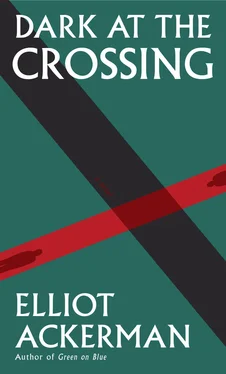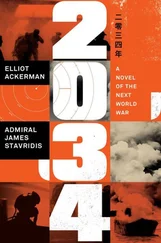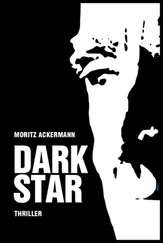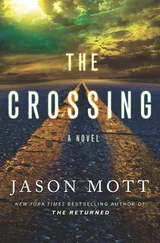“Who’s your contact there?” asked Saied. “Nadji-X? Abdullah79? Saladin1984?” Haris blinked, an involuntary response to the familiar name. “Of course, Saladin. I would be careful with his name, lest you cause him problems.”
“Where were you fighting when you were wounded?” Haris asked, changing the subject.
Saied glanced toward the sky, as if sharing some joke with the heavens. Haris’s assumption of a direct link between wounds and fighting seemed to amuse Saied. Then he leaned forward, wincing against the pain in his stomach, his eyes narrowing to slits. “I wasn’t fighting.”
Soon the rain stopped, then the tent emptied, and the faithful emerged in ones and twos across the parking lot’s washed gravel. Men with thick, neck-length beards gathered around the café counter. They seemed to search out Athid, going to great pains to greet him with reverence.
“It was Athid who brought me here,” explained Saied. “Among religious men, he is known for his piety.”
Haris said nothing, unsure what Saied meant by this.
The sun began to scoop out the clouds, clearing the sky. With the sun, the fighting across the border resumed. Saied and Haris instinctively stared up at the growing tracks of blue, searching for a plane, waiting to see it go belly over, cockpit toward the ground, the pilot checking his target one last time, then diving down.
“There are no planes,” Saied said. “If the regime were involved, there would be planes. It’s just the Free Army fighting the Daesh.”
It had been a long time since planes flew so far north. In this, the third year of the war, the rebels had turned in on themselves, giving the regime a rest. Sitting on the far side of the border, Saied and Haris listened to clashes between the Free Army and Daesh. The Daesh were winning that fight. The spring and summer protests which had begun the revolution were a memory. Poor supplies, corrupt commanders and, sadly, defections had crippled the Free Army, which had grown from those protests. When the last of the Free Army dissolved, the revolution would finally be over. Then the war could begin.
Saied had stopped looking to the sky. He opened his parka and ran a severed index finger over his red Che T-shirt. “A plane did this,” he said. “You asked. It was by a plane.”
Haris heard the clinking of saucers, and he turned to see Athid crossing the parking lot. Next to him, the café owner balanced a large steel platter against one shoulder, its rim crowded with glasses of tea and açma baked into tight fists. Athid sat down as the café owner unloaded the platter.
“What were you two discussing?” asked Athid.
“I was telling Haris the story of my injuries.”
Athid became quiet for a moment, his stare falling heavily on Saied. “A bit of discretion might be wise.”
“Why’s that?” snapped Saied. “I’m far from the war. Who can harm me now?” He dropped two sugars in his tea. Haris did the same and then offered some to Athid, who refused. “He’s a holy man,” said Saied. “No cigarettes, no alcohol, not even sugar.”
Athid took a sip of his bitter tea and then buried his hands in the pockets of his field jacket. “To abstain is to have a long life.”
Saied stirred the sugar from his cup’s bottom. “Do you know about the man who asked his doctor for a long life?” Athid and Haris said nothing. “The man said: I wish to grow very old. The doctor asked him if he drank. No, he answered, not a drop. How much do you eat? Very little, said the man, and always in moderation. Do you smoke? He told the doctor never. And women? I don’t touch them, said the man. Then the doctor shook his head, confused, considering all he’d been told. Turning to this pious man, he asked a last question: So why is it you want to live?”
Haris laughed, joining in with Saied. Athid quietly finished his tea.
The three continued to sit together, their conversation easing into a more casual rhythm. Saied told Haris how he hoped to gather enough money to travel to Antep. At one of the city’s hospitals, he could get his hasty surgery cleaned up. Then perhaps he could find a job. Haris told both men how, over email, he’d been recruited by Saladin1984 to fight for the Free Army’s Northern Storm Brigade, based in Azaz. Saied and Athid seemed to approve of this decision, offering their opinions of the Northern Storm and other brigades. They asked how he planned to cross with the border closed. Haris wasn’t certain and told them as much.
“I think something can be arranged,” said Athid, leaving it at that.
When the café owner came to clear their table, Haris offered him money to settle the bill. “No need,” he replied, stacking their tea saucers. “They’ve already taken care of it.”
Across the parking lot, standing at the café counter, were the Turkish gendarmes. The shorter gendarme, the one who spoke Arabic, caught Haris’s eye and gave a slanted grin. He sipped some tea, raising his glass, as if to toast Haris and his new friends. Haris glanced back at Saied, who, upon seeing the two gendarmes, had begun to drum his fingers against the table.
Two nights later, Haris Abadi awoke on the ground in the large tent. He sat up from the cheap-carpeted floor and hugged his knees to his chest. It took him a couple of breaths to remember where he was. It took him a few more to remember why he was there. Slowly he recognized his surroundings and reminded himself of his purpose — the border. The tent’s gray canvas roof flapped above him, pulling itself taut and loose with a snapping sound, a grubby aurora borealis moving in strange currents of air. The weather had remained bad, overcast and cold, though it hadn’t rained again. Sitting in the dark, Haris listened for the rain.
The fighting in Azaz had ended the day before, but Haris hadn’t heard anything back from Saladin1984. With the border still closed, Athid had offered to smuggle Haris across. He’d told Haris he felt obligated, as a Syrian, to help anyone who intended to fight against the regime.
The crossing required rain. There was a tunnel system two miles away, some underground culverts the Turkish farmers used to drain their fields into Syria. Haris and Athid could climb through, but the farmers opened the culverts only when it rained.
Haris continued to listen, hoping for weather. Every corner of the tent stirred with sleeping refugees. A few of them had blankets. Most slept packed together, warming each other in a herd. Haris turned on his phone. After checking its charge, he slid it into his shirt pocket and laced up his boots. A full moon filtered its light through the tent’s open flap. Saied’s cot was next to the entrance because his wounds often forced him up in the night, or so he’d told Haris. Glancing toward the flap, Haris noticed Saied was gone.
Haris walked past the empty cot as he left the tent. Outside, the moonlight cast a jigsaw of shadows against the earth and the clouds hung low. The air was damp and heavy. He crossed the parking lot and sat in the café. He thought he would wait awhile, to see if the rain would come.
Down at the border crossing, Haris could make out the gendarmes who worked the night shift. Their booth was dim except for the television that played inside, flashing impressions against two silhouettes of equal height. Haris wondered about the gendarmes from before, the short one and his taller friend — where did they go when not on shift?
The coiled hose in the corner of the gravel lot caught Haris’s eye. He hoped nothing had happened to Saied — his flayed stomach, his missing fingertips. The idea that Saied had been rushed to some hospital while Haris slept formed slowly in his mind. Before Haris’s imagination got away from him, Athid’s long shadow arced across the ground like a searchlight as he stepped from behind the café.
Читать дальше












